‘American Fiction’: Exploring the multifaceted brilliance of an utterly brilliant satire
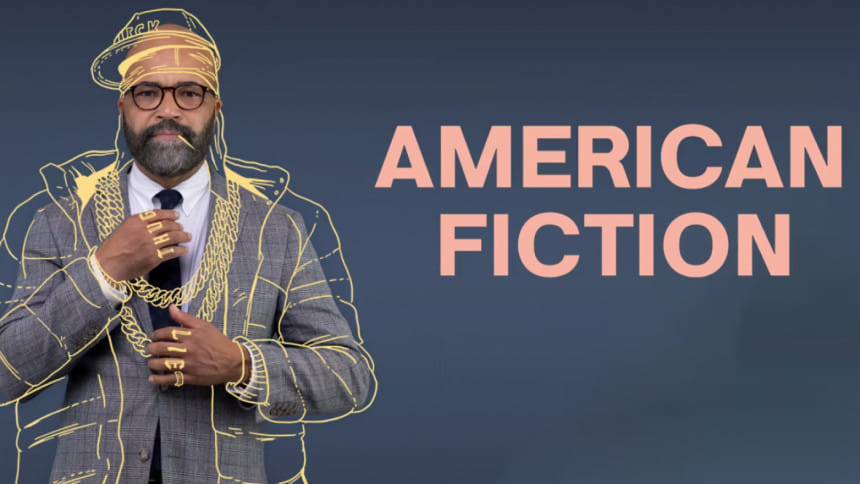
In the realm of cinematic storytelling, few genres wield as much power as satire. It's a weapon of wit, capable of slicing through societal norms and revealing the absurdities hidden within. In the case of "American Fiction", Cord Jefferson's directorial debut, satire takes centre stage. However, it's just one facet of a gemstone of a film that shines brightly in its exploration of race, family dynamics, and the complexities of artistic identity.

Drawing from Percival Everett's 2001 novel "Erasure", Cord Jefferson's inaugural venture into feature-film direction evokes parallels with Spike Lee's incisive satire "Bamboozled". Both narratives depict disillusioned black creatives intentionally crafting works deemed demeaning and offensive to challenge white executives. Yet, their well-intentioned strategies ultimately implode as they underestimate the extent to which white audiences crave reinforcement of their prejudices and biases.
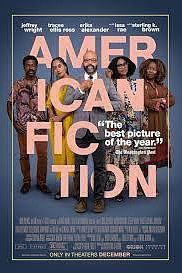
At its core, "American Fiction" is a biting commentary on the American publishing industry's pigeonholing of black authors. Jeffrey Wright leads the charge as Thelonious "Monk" Ellison, a frustrated novelist whose works are dismissed as not "black enough." In response, Monk pens a parody of the stereotypical "ghetto" novel, only to find it met with critical and commercial success. This central premise sets the stage for a scathing indictment of the commodification of Black trauma narratives by the predominantly white literary establishment.
But "American Fiction" doesn't stop there. It dives deep into Monk's personal life, exploring the intricate dynamics of his family relationships. From his conflicts with his brother Cliff– brilliantly portrayed by Sterling K Brown– to the tender moments shared with his girlfriend Coraline– played with grace by Erika Alexander– the film paints a picture of familial love, tension, and resilience.
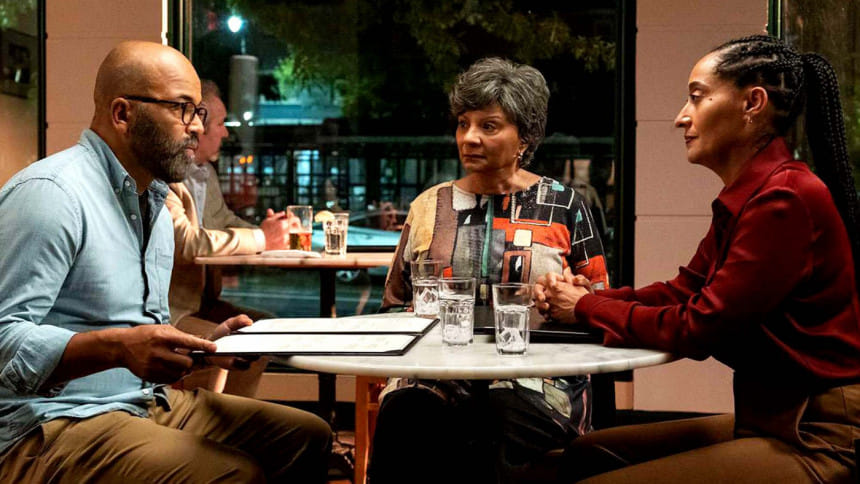
What struck me most about "American Fiction" was its unwavering commitment to authenticity and truth. In a world where art is often reduced to a mere commodity, Jefferson dared to challenge the status quo, disrupt the prevailing narratives, and demand more from the cultural discourse. It was a bold statement of defiance, a rallying cry for all those who dare to dream of a better, more equitable world.

"American Fiction" masterfully portrays the repercussions of turning art into a commodity. The lengths Monk is willing to go to sell his fake book are particularly amusing, where witty banter and blatant satire transform ordinary dialogues into hilarious clashes of ideologies. Even if this were the film's sole achievement, it would still stand as a remarkable piece of cinema. However, what truly sets "American Fiction" apart is its profound exploration of the significance of diverse storytelling. Amidst the laughter and stellar performances lies a poignant reflection on the importance of embracing narratives from various perspectives, even those considered vulgar or controversial.
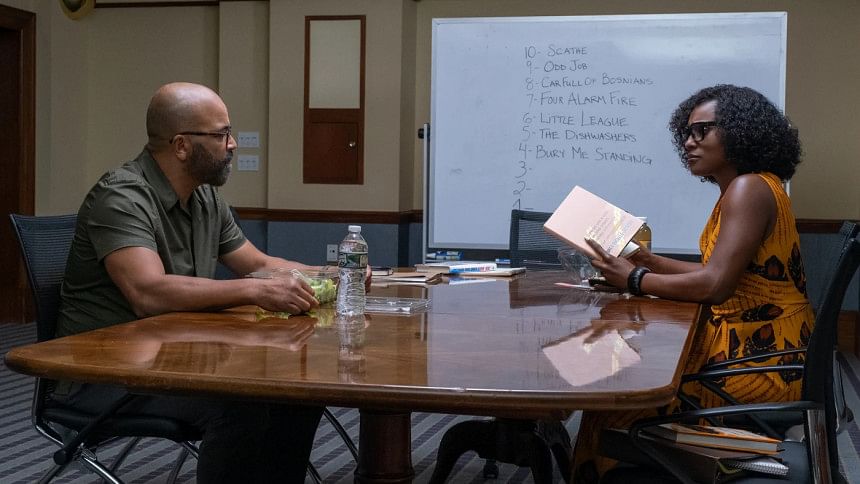
The film deftly navigates themes of mental health, sexuality, and identity, all while maintaining a sharp comedic edge. Indeed, it's in these quieter moments that "American Fiction" truly shines. Wright's portrayal of Monk is nothing short of mesmerising, capturing the character's blend of frustration, vulnerability, and biting wit with nuance and depth. Additionally, he's supported by a stellar ensemble cast, including Tracee Ellis Ross, Leslie Uggams, John Ortiz, and Issa Rae, who each bring their own unique flair to the table.
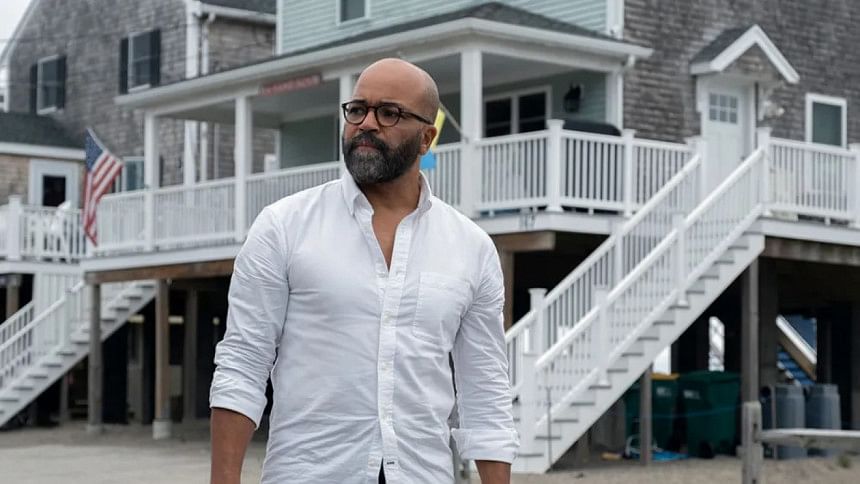
But perhaps what elevates "American Fiction" to greatness is its willingness to tackle complex issues with both humour and heart. Through Monk's journey, we're forced to confront uncomfortable truths about race, class, and the nature of artistic expression. Yet, amidst the biting satire and social commentary, there's an underlying message of hope – a belief that even in the face of adversity, there's still room for redemption, growth, and understanding.
In the end, "American Fiction" is more than just a brilliant satire – it's an intriguing exploration of the human experience in all its messy, contradictory glory. It's a film that challenges us to question our assumptions, confront our biases, and embrace the complexities of the world around us. In an era where division and discord seem to reign supreme, perhaps that's the most powerful message of all.

 For all latest news, follow The Daily Star's Google News channel.
For all latest news, follow The Daily Star's Google News channel. 





Comments